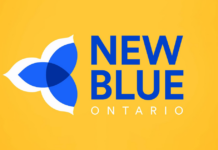Alberta’s regulatory body for physicians and surgeons has withdrawn a proposal to have doctors refer patients for abortions or assisted suicide following backlash from a prolife political party.
Last month, Prolife Alberta, a registered provincial political party, asked supporters to submit feedback to the College of Physicians and Surgeons of Alberta’s (CPSA) proposal to implement what’s called effective referral.
The proposal would have ended the current system of allowing patients to seek an abortion or assisted suicide without an objecting physian’s involvement, said Prolife Alberta executive director Richard Dur.
“It forces (doctors) basically to participate in the evil of abortion or euthanasia,” Dur told True North. “And for many physicians, that’s contrary, of course, to the Hippocratic Oath that they swore and contrary to their beliefs.”
Prolife Alberta drew attention to the issue in a Jan. 5 email to supporters, saying, “if the CPSA has its way, doctors will be forced to violate their conscience or face disciplinary actions or even give up their practice.”
The party urged followers to leave feedback on the CPSA’s website as the regulatory body consulted with regulated members, partner organizations, other healthcare professionals and Albertan residents.
One week later, Prolife Alberta claimed victory as the CPSA announced that effective referral would be removed from the Conscientious Objection standard “based on initial feedback received.”
“Well, you pushed back and they listened!” Prolife Alberta told supporters on Jan. 12.
Andrea Smith, press secretary for Health Minister Adriana Lagrange, said questions about the policy and its status would best be addressed by the CPSA.
“Alberta’s government supports maintaining the policy currently in place,” Smith said in an email.
The CPSA said its current standard on conscientious objection states that a physician is responsible for ensuring timely access to “a regulated member who is willing to provide the medical treatment, service or information, or a resource that will provide accurate information about all available medical options.”
The college understood effective referral to have the same meaning as the existing standard while maintaining consistency with other jurisdictions in Canada, said CPSA communications advisor Melissa Campbell.
“We heard feedback from physicians, Albertans and other stakeholders very early on that this term was problematic and unclear,” Campbell said in an email to True North.
“CPSA did not intend to impose any new requirements on physicians that would go against their conscience and we support physicians’ right to conscientious objections.”
The current CPSA standard differs from effective referral because it allows medical professionals to provide information, said Daniel Zekveld, a policy analyst at the Association for Reformed Political Action, which encourages Christians to political action. Left undefined, effective referral can mean much more than simply providing information, he said.
For instance, effective referral in Ontario means “taking positive action to ensure the patient is connected to a non-objecting, available, and accessible physician, other health-care professional, or agency,” Zekveld said.
“So while doctors are not required to provide a procedure they object to, they are required to facilitate that procedure.”
Zekveld said doctors in Ontario have been retiring early or leaving the province due to effective referral requirements, adding, “with an already-strained healthcare system, we can’t afford to lose doctors due to poor policies.”
Dur agreed that effective referral policies could result in increased doctor shortages. He said some professionals have sought registration in Alberta because of the province’s more reasonable conscience objection standard “which allows you not to have to participate in referring somebody for doctor assisted suicide or an abortion.”
He also said he expects the issue of “effective referral” will come up again.
“Eternal vigilance — that’s what’s required, as seems always to be the case, on issues of life.”





















